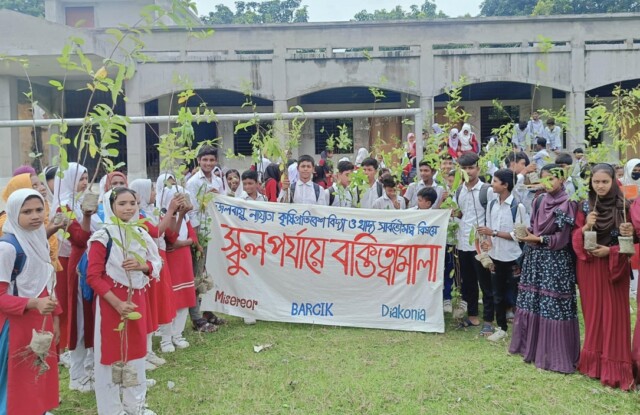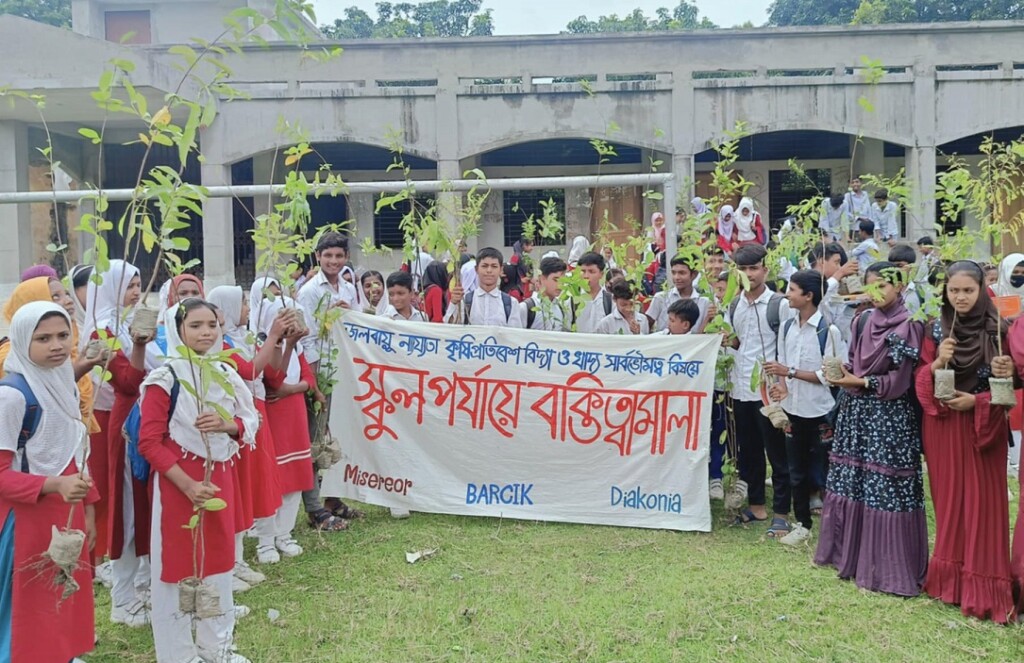Md Touhidul Islam from Rajshahi
Geographically, the Barind region is vulnerable to drought. There are drawbacks to climate change. The effects of the drought on life are becoming more and more apparent every day. In an attempt to inspire younger generations of students about nature, biodiversity and the harmful impacts of climate change and climate justice, a speech-giving program on climate justice, agroecology, and food sovereignty was recently held at Bilnepalpara Chashi Rahim Bakhsh Academy, Darshanpara Union, Paba Upazila of Rajshahi.
The regional coordinator for BARCIK, Md. Shahidul Islam, shared thoughts on this issue with the participants. He asserted that the dreadful reality of today’s world is climate change. Farmers are losing their harvests every year as a result of climate change induced disasters, and agricultural production is also dropping alarmingly. He said that there is no other way to ensure the nourishment of the impoverished except via climate justice.

“There is no alternative to planting more trees to protect the environment,” stated Md. Yunus Ali, an assistant teacher. Furthermore, it is imperative to save the old trees. The environment and people are closely related to one another. In an adverse environment, life will not flourish but will be impeded, affecting both humans and other plants and animals.
Md. Yunus Alio further said that the world’s ecology is continuously in danger as a result of deforestation, misuse of natural resources, excessive use of pesticides and fertilizers, and usage of plastic items. More trees should be planted in order to preserve the ecosystem’s equilibrium and ensure the survival of all living beings, including humans.
During this period, the facilitator created some student-initiated action plans, such as cleaning and greening the campus, organizing weekly life, nature, and environment lesson cycles in their classrooms, and taking the initiative to make the trees planted nearby to make environment friendly.
According to 15-year-old Mst. Mehrun Nessa, ‘Our planet is one. For our own safety, the Earth must remain green. The younger generation needs to assume accountability.’ In addition, she declared that we would all plant one tree around the home and inspire others to do the same. Planting trees is essential to maintaining the world’s greenery. She said, ‘We want to build a Green World where every life forms including will live with peace and security’.

Lastly, a quiz competition was arranged that covered the discussion. The results of the quiz competition showed that Md. Shamim Basir, a student in the ninth grade, took first place, Md. Suhab, an eighth grader, took second place, and Mst Mehru8n Nessa, an eighth grader, took third place.
Four native fruit tree seedlings were awarded to each of the competition winners. BARCIK’s attempt is commendable, according to assistant instructor Mohammad Yunus Ali, Md. Shariful Islam, who also reminded the youths that only they are capable of creating a green city. All of the pupils who attended the discussion received saplings of local fruit trees, including guava, lemon, and amla.
Translated by Shaheda Purna

